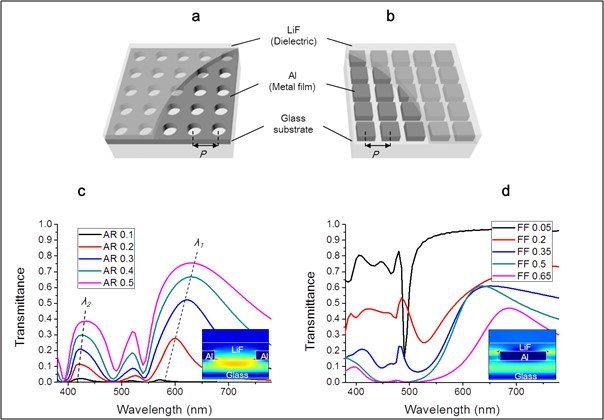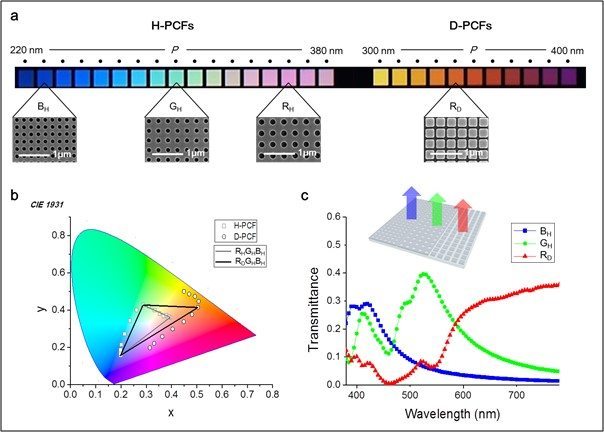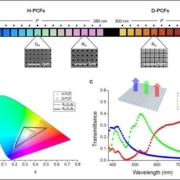Developing ultra-definition display with a color filter technology
A color filter technology has been developed that can bring forward commercialization of next generation’s TVs with ultra-definition visibility and lower prices. The National Research Foundation of Korea (a chairman of the board, Moo-jae, Cho) announced that Prof. for Korea University, Byeong-kwon, Joo’s research team has developed a complementary plasmon color filter having sharp display and high resolution. The color filters which are currently used in the display industry mainly are optical absorption type using pigments or dyes. It has low chemical stability since it is based on organic materials and high unit cost due to manufacturing RGB filters separately. On the other hand, the optical interference type plasmon color filter using inorganic materials can simultaneously produce various color filters at low cost, but there is a problem that the color purity is in decline due to color interference occurring in the two-dimension array of nanostructures.

<Transmittance spectrum according to opening ratio of Hole pattern and dot pattern structures, Source: The National Research Foundation of Korea>
The research team applied a reversal approach to break out the existing pattern as complementary design method that combines dot pattern with hole pattern. It is a general viewpoint of academia that it is difficult to apply dot pattern to a transmission color filter in the form of reversing the existing hole pattern. However, the team assured that the extraction of high purity for red is possible through effective blocking the leakage of short wavelengths by dot pattern under certain conditions. The result is shown that the range of implementing color in the complementary designed plasmon color filter is widened over 30% than before.

<Plasmonic color filter of Hole pattern and Dot pattern structure produced, Source: The National Research Foundation of Korea>
In addition, the implementing of various color of the complementary plasmon color filters is available such as red, green, and blue by adjusting only the geometric parameters of the nanopattern. The performance can be improved without additional costs since the existing materials and manufacturing methods could be used as usual.
Prof. Byeong-kwon, Joo explained that “This research has developed a plasmon color filter with high color reproducibility through a complementary design method. This is expected to accelerate the development of the next-generation display combining nano-optic devices.”
The research results were performed by supporting of the Basic Research Support Project(private research) of the National Research Foundation of Korea at the Ministry of Science, ICT and Future Planning, the Ministry of Education·BK21 support project of the National Research Foundation. It was published in the Scientific Reports affiliated journal of an international journal Nature, on January, 13th.

